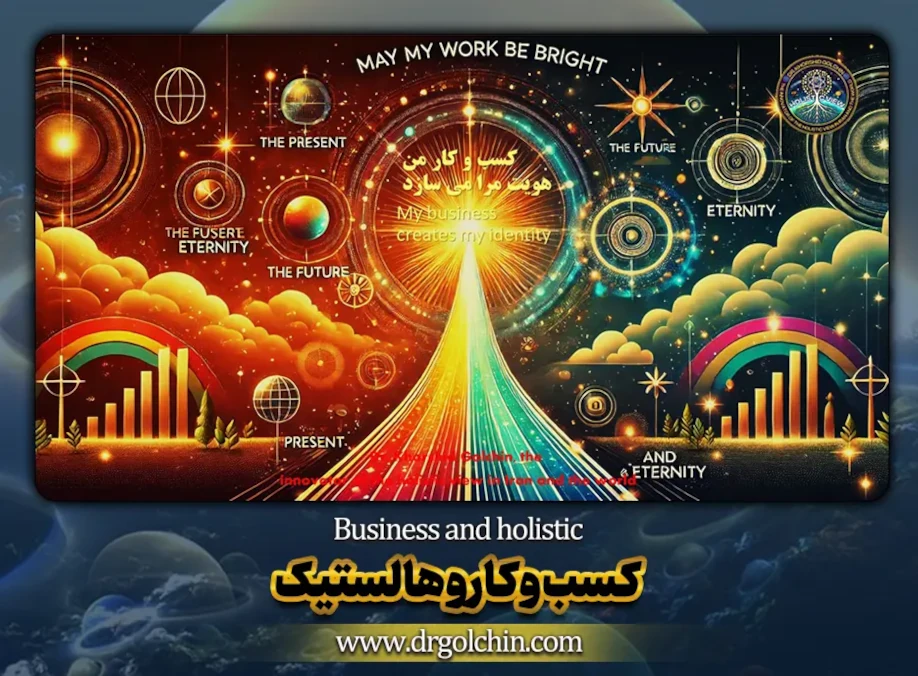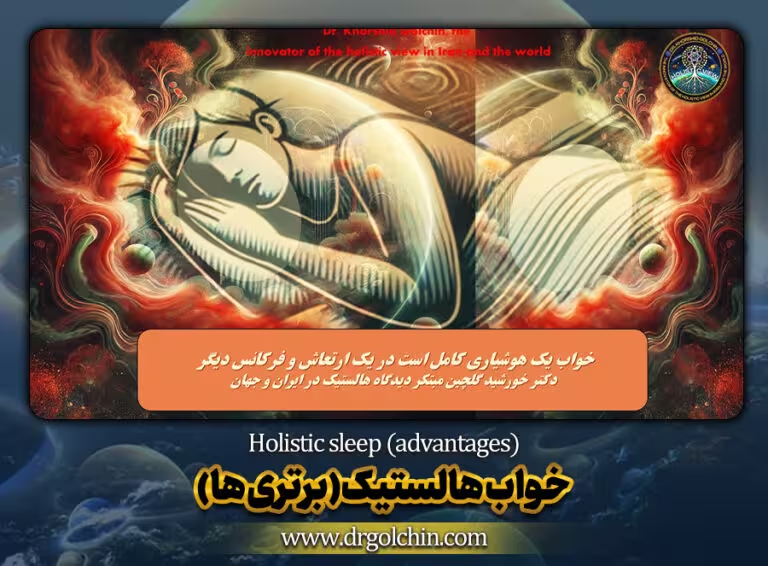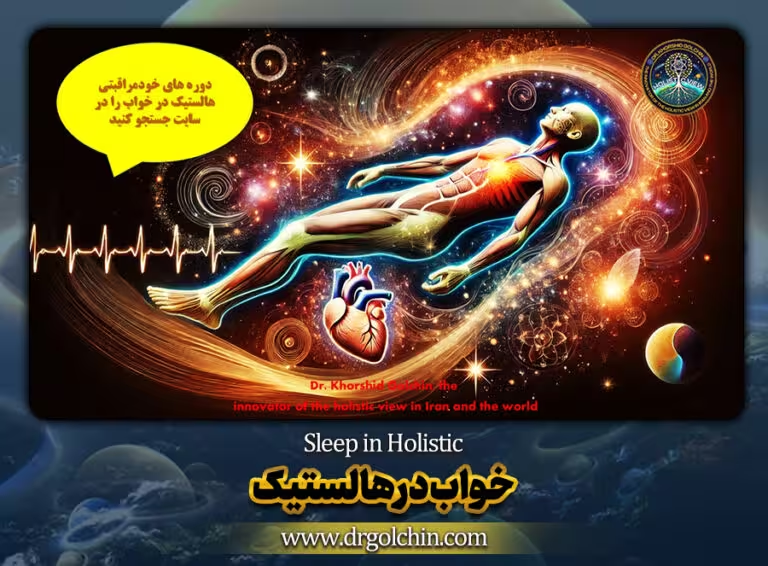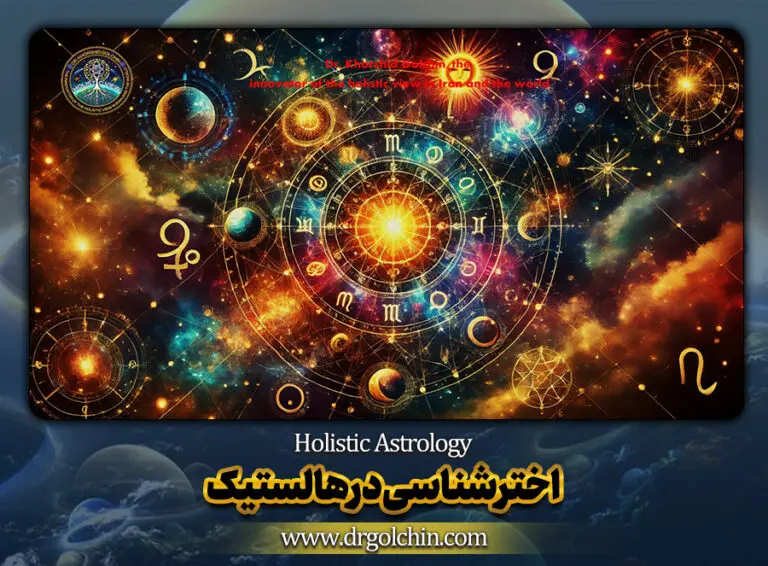کلام زنده است
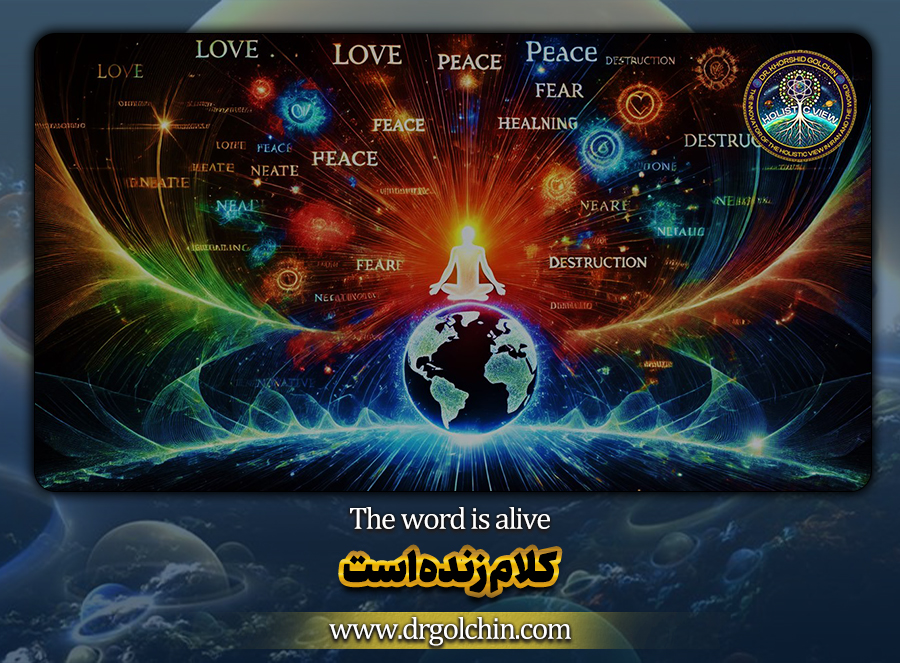
دکتر گلچین هستم مبتکر دیدگاه هالستیک در ایران و جهان ، معتقدم که کلام انسان ها یک بازتاب جهانی دارد که بر کل جهان اثر می گذارد، و در هر لحظه حال جهان را عوض می کند، کلمات منفی و مخرب حال جهان را بیمارگونه می کند. دیدگاه من به عنوان مبتکر نظریه هالستیک، بر قدرت کلام انسانها در تأثیرگذاری بر کل جهان تأکید دارد. این دیدگاه اشاره به این دارد که کلام نه تنها بر زندگی فردی و اجتماعی افراد اثر میگذارد، بلکه بازتابی جهانی دارد که میتواند انرژی کلی جهان را تغییر دهد. چنین نظریهای بهنوعی به ارتباط بین افکار، کلام، و انرژی جهانی اشاره دارد که در فلسفهها و علوم مختلف نظیر فیزیک کوانتوم، روانشناسی، و حتی عرفان نیز مورد بررسی قرار گرفته است. بر اساس این دیدگاه، کلمات نه تنها بازتابی از حالات درونی ما هستند، بلکه توانایی آن را دارند که تأثیرات فراگیر و عمیق بر محیط اطراف و حتی کل جهان داشته باشند. بهویژه کلمات منفی و مخرب، بهنوعی وضعیت جهان را بهسمت عدم تعادل و نوعی «بیماری» سوق میدهند. در ادامه lrhgi کلام زنده است به برخی از اصول کلیدی این نظریه و تأثیرات جهانی کلام پرداخته میشود:
فهرست عناوین
کلام به عنوان انرژی
طبق نظریههای فیزیک کوانتوم، همه چیز در جهان از انرژی تشکیل شده است و کلام نیز بهعنوان نوعی از ارتعاشات صوتی، دارای انرژی خاص خود است. کلمات مثبت میتوانند ارتعاشات مثبت تولید کنند که جهان را به سمت توازن و هماهنگی سوق دهد، در حالی که کلمات منفی میتوانند انرژیهای مخرب و ناسالم ایجاد کنند که موجب عدم تعادل در جهان میشود.(کلام زنده است)
تأثیر کلام بر آگاهی جمعی در کلام زنده است
دیدگاه هولستیک همچنین به آگاهی جمعی و تأثیر کلام بر آن اشاره دارد. بهعنوان مثال، وقتی تعداد زیادی از افراد از کلمات منفی و مخرب استفاده کنند، این کلمات به نوعی بر آگاهی جمعی اثر میگذارند و محیطی پراسترس، پرتنش، و ناهماهنگ ایجاد میکنند. این محیطها نه تنها بر افراد در مقیاس کوچک تأثیر میگذارند، بلکه حال جهان را نیز تغییر میدهند.
تأثیر درمانی کلمات مثبت در کلام زنده است
از سوی دیگر، استفاده از کلمات مثبت و زندگیبخش میتواند نه تنها افراد، بلکه جهان را نیز بهسمت بهبودی و هماهنگی سوق دهد. این دیدگاه با رویکردهای درمانی نظیر روانشناسی مثبتنگر و طب مکمل همخوانی دارد، جایی که تأثیرات مثبت کلمات و افکار بر سلامت روحی و جسمی فرد به اثبات رسیده است. ( انرژی کلمات )
مثالهایی از تأثیر کلمات بر محیط جهانی
- نیایشهای جمعی: در بسیاری از فرهنگها و ادیان، نیایشها و دعاهای جمعی برای صلح و هماهنگی جهانی صورت میگیرد که از آن بهعنوان نمونهای از تأثیر مثبت کلمات بر جهان یاد میشود.
- رسانهها و شبکههای اجتماعی: امروزه رسانهها و شبکههای اجتماعی میتوانند با انتشار کلمات منفی و تحریکآمیز، موجی از اضطراب و تنش را در سراسر جهان ایجاد کنند.
- مقابله با نفرتپراکنی: کمپینهای جهانی علیه نفرتپراکنی (hate speech) نمونهای از تأثیر مستقیم کلمات منفی بر جوامع و تلاش برای مقابله با تأثیرات مخرب آن است.
کلام به عنوان یک عنصر اساسی از زبان و ارتباطات بشری، نقش حیاتی در تعاملات اجتماعی و فردی ایفا میکند. از دوران باستان تا به امروز، فیلسوفان، متفکران، و رهبران مذهبی و اجتماعی تأکید کردهاند که کلام میتواند نه تنها به انتقال اطلاعات کمک کند، بلکه میتواند زندگی انسانها را بهبود بخشد یا حتی به آن آسیب برساند. جملهای که شما مطرح کردهاید “کلام زنده است و زندگی میبخشد یا زندگی میگیرد” اشاره به این قدرت ذاتی کلام دارد که میتواند تأثیرات مثبت یا منفی عمیقی بر روی زندگی افراد بگذارد. در این تحلیل به بررسی مفهوم این جمله و ارائه ده مثال از تأثیرات مثبت و منفی کلام بر زندگی افراد میپردازیم.(کلام زنده است)
کلام به عنوان نیرویی زندگیبخش
۱. ایجاد انگیزه و اعتماد به نفس: کلام میتواند به عنوان ابزاری برای ایجاد انگیزه و افزایش اعتماد به نفس عمل کند. مثلاً، وقتی یک معلم به دانشآموز خود میگوید: «تو میتوانی موفق شوی، به تلاش ادامه بده»، این کلمات میتوانند زندگی دانشآموز را به شکل مثبت تغییر دهند و به او انگیزه دهند تا برای رسیدن به اهدافش تلاش بیشتری کند.(کلام زنده است)
۲. کلام شفابخش در روابط انسانی: در مواقعی که افراد با مشکلات روحی یا جسمی مواجه هستند، کلمات محبتآمیز و همدلانه میتوانند بهبود قابل توجهی در وضعیت آنها ایجاد کنند. برای مثال، صحبتهای یک مشاور روانشناس با بیمار خود، میتواند آرامشبخش و شفابخش باشد و به فرد کمک کند تا از بحران روحی خارج شود. )کلام زنده است
- قدرت کلام در دعاها و نیایشها: در بسیاری از مذاهب و فرهنگها، کلام به عنوان ابزاری برای ارتباط با نیروهای الهی به کار میرود. دعاها و نیایشها نمونهای از کلامهایی هستند که به گفته بسیاری از افراد به آنها آرامش و قدرت میبخشند و در شرایط سخت زندگی به آنها امید میدهند.
- ایجاد اتحاد و همبستگی اجتماعی: رهبران بزرگ از کلام برای ایجاد اتحاد و تقویت همبستگی در جوامع استفاده میکنند. سخنرانیهای تاریخی افرادی چون مارتین لوتر کینگ یا مهاتما گاندی با استفاده از کلمات امیدبخش و الهامبخش توانستند مردم را به تلاش برای عدالت و برابری تشویق کنند و در نهایت تغییرات اجتماعی عظیمی را به همراه داشته باشند.
- ترویج صلح و سازش: کلام میتواند به عنوان ابزاری برای ترویج صلح و سازش بین افراد یا گروههای درگیر استفاده شود. مثلاً در مذاکرات صلح، کلمات میتوانند به ایجاد تفاهم و حل اختلافات کمک کنند و از وقوع جنگها و درگیریها جلوگیری کنند.
کلام به عنوان نیرویی ویرانگر در مقاله کلام زنده است
۱. تخریب اعتماد به نفس: کلمات منفی و تحقیرآمیز میتوانند تأثیرات بسیار مخربی بر روی روحیه و اعتماد به نفس افراد داشته باشند. مثلاً وقتی به کودکی مداوم گفته میشود: «تو هرگز موفق نخواهی شد»، این جمله میتواند مانع پیشرفت او در زندگی شود و اعتماد به نفس او را به شدت کاهش دهد.
۲. نشر نفرت و تبعیض: در طول تاریخ، کلمات و جملاتی که نفرت و تبعیض را ترویج میدهند، باعث خشونت و جدایی بین مردم شدهاند. برای مثال، سخنرانیهای نفرتانگیز نازیها در دوران هیتلر نمونهای از این موضوع هستند که موجب کشتار و تبعیض نژادی گستردهای شدند.
۳. ترویج خشونت و ترور: بعضی از کلمات و شعارها میتوانند منجر به ترویج خشونت و ترور شوند. در جریان جنگها یا شورشهای داخلی، کلمات تحریکآمیز و تفرقهافکنانه ممکن است به افراد الهام دهند که به خشونت متوسل شوند و به تخریب اجتماعی و حتی جان افراد منجر شوند. (کلام زنده است)
۴. خرد کردن روحیه افراد: انتقادهای ناعادلانه یا کلمات توهینآمیز میتوانند افراد را از نظر روحی نابود کنند. بسیاری از افراد به دلیل مواجهه مکرر با انتقادات شدید و غیرمنصفانه در محیطهای کاری یا خانوادگی، دچار افسردگی و از دست دادن انگیزه شدهاند.
۵. ایجاد ترس و ناامنی روانی: کلمات میتوانند به سرعت ترس و ناامنی را در افراد گسترش دهند. مثلاً پخش اخبار نادرست یا شایعات منفی درباره یک بحران میتواند ترس و نگرانی را در سطح جامعه افزایش دهد و منجر به استرس و اضطراب شود.
نتیجهگیری مقاله کلام زنده است
کلام واقعاً یک نیروی قدرتمند است که میتواند هم زندگیبخش باشد و هم زندگیگیر. از یک طرف، کلام میتواند به عنوان ابزاری برای ایجاد انگیزه، امید، و همبستگی عمل کند. از طرف دیگر، کلمات میتوانند به تخریب اعتماد به نفس، نشر نفرت، و ترویج خشونت منجر شوند. لذا، باید همواره به اهمیت کلام و تأثیر آن بر زندگی افراد توجه داشته باشیم و سعی کنیم از آن بهگونهای استفاده کنیم که زندگیبخش باشد.
دیدگاه هالستیک من به ما یادآوری میکند که کلمات انسانها بازتابی از انرژیهای جهانی هستند و میتوانند بر سلامت و حال جهان اثرگذار باشند. استفاده آگاهانه از کلمات مثبت میتواند به توازن و بهبود جهانی منجر شود، در حالی که کلمات منفی و مخرب میتوانند جهان را بهسمت عدم تعادل و ناهنجاری سوق دهند.
Dr. Golchin, I am the originator of the holistic view in Iran and the world, I believe that the words of people have a global reflection that affects the whole world, and changes the state of the world at every moment, negative and destructive words make the state of the world sick. (The word is alive)
MY holistic viewpoint reminds us that the words people use resonate globally, affecting not just individual lives but the very health of the world. Consciously choosing to use positive words can lead to a more balanced and healed world, while negative and destructive language can drive the world toward imbalance and disharmony. This emphasizes the importance of mindfulness in our communication, as each word carries the potential to either heal or harm the world around us.
MY perspective as the founder of the holistic viewpoint emphasizes the profound power of human words to influence not only individual lives but the entire world. This idea suggests that words are not merely tools for communication but possess a global resonance, impacting the energy and state of the world in real-time. Negative and destructive words, in this view, can lead to a “sick” or unbalanced state in the world. Below, we explore key principles of this holistic theory and the global effects of words:
- Words as Energy:
According to quantum physics, everything in the universe is composed of energy, and words, as a form of sound vibration, carry their own energetic frequencies. Positive words can generate constructive vibrations, guiding the world toward balance and harmony. On the other hand, negative words create destructive, unhealthy energy that disrupts this balance, leading to disharmony in the global environment.
- Impact on Collective Consciousness:
The holistic view also connects words to the concept of collective consciousness. For example, when large groups of people use negative and destructive language, these words influence the collective awareness, creating an atmosphere of stress, tension, and disharmony. This doesn’t just affect individuals in a localized way but shifts the state of the world as a whole, leading to a change in its “health.”
- The Healing Power of Positive Words:
Conversely, positive and life-affirming words can bring about healing and alignment not only in individuals but across the global environment. This aligns with approaches such as positive psychology and complementary medicine, where the positive impact of words and thoughts on mental and physical health is well-documented.
- Examples of Words’ Global Impact:
- Collective Prayer: In many cultures and religions, collective prayers for peace and global harmony are practiced, symbolizing the belief in the positive effect of words on the world.
- Media and Social Networks: Today, media and social networks can spread negative and inflammatory words, causing waves of anxiety and tension across the globe.
- Combating Hate Speech: Global campaigns against hate speech serve as an example of how negative words can create societal discord, and how conscious efforts are made to mitigate their harmful effects.
Words, as the fundamental element of language and communication, play a crucial role in human interactions. Throughout history, philosophers, thinkers, and religious or social leaders have emphasized that words do more than just convey information—they have the power to enhance or harm people’s lives. The phrase “words are alive and either give life or take it away” points to the inherent power of language, which can deeply affect individuals, either positively or negatively. In this analysis, we will explore the meaning behind this statement and provide ten examples of how words can either give or take away life.
Words as Life-Giving Forces
- Building Motivation and Confidence: Words can serve as a tool to build motivation and increase confidence. For example, when a teacher tells a student, “You can succeed, just keep trying,” these words can positively change the student’s life by inspiring them to work harder towards their goals.
- Healing in Human Relationships: In times of emotional or physical distress, compassionate and kind words can significantly improve a person’s well-being. For instance, the comforting words of a psychologist during a therapy session can bring calm and healing to someone going through a mental health crisis.
- The Power of Words in Prayers and Meditations: In many religions and cultures, words are used as a means to connect with divine forces. Prayers and meditations are examples of life-giving words that many believe bring them peace and strength, especially in times of difficulty.
- Fostering Unity and Social Cohesion: Great leaders use words to inspire unity and foster social cohesion. Historical speeches by figures like Martin Luther King Jr. or Mahatma Gandhi, filled with hopeful and inspiring words, motivated people to strive for justice and equality, leading to significant social changes.
- Promoting Peace and Reconciliation: Words can act as a medium for promoting peace and reconciliation between individuals or groups in conflict. For instance, during peace negotiations, carefully chosen words can facilitate understanding and help resolve disputes, thus preventing wars or violent conflicts.
Words as Destructive Forces
- Destroying Confidence: Negative and degrading words can have a devastating impact on an individual’s confidence. For example, repeatedly telling a child, “You will never succeed,” can stifle their potential and greatly diminish their self-esteem.
- Spreading Hatred and Discrimination: Throughout history, words and phrases that promote hatred and discrimination have led to violence and division among people. The hateful speeches of Nazi leaders during Hitler’s regime, for example, resulted in widespread racial discrimination and the tragic events of the Holocaust.
- Inciting Violence and Terror: Some words and slogans can encourage violence and terror. During wars or internal uprisings, inflammatory and divisive rhetoric often inspires individuals to commit acts of violence, leading to social destruction and even loss of life.
- Crushing Spirits with Unjust Criticism: Unfair criticism or derogatory words can break a person’s spirit. Many individuals, faced with continuous harsh criticism in workplaces or families, fall into depression or lose their drive to pursue their goals.
- Creating Fear and Psychological Insecurity: Words can quickly spread fear and insecurity. For example, false rumors or negative reports about a crisis can amplify anxiety and fear in society, leading to widespread stress and panic.
Conclusion
Indeed, words are powerful and can either give life or take it away. On one hand, words can act as tools for building motivation, hope, and unity. On the other hand, they can destroy confidence, spread hatred, and incite violence. Therefore, it is essential to recognize the profound impact of words on people’s lives and to use them in ways that promote life, growth, and positivity.
MY holistic viewpoint reminds us that the words people use resonate globally, affecting not just individual lives but the very health of the world. Consciously choosing to use positive words can lead to a more balanced and healed world, while negative and destructive language can drive the world toward imbalance and disharmony. This emphasizes the importance of mindfulness in our communication, as each word carries the potential to either heal or harm the world around us.


